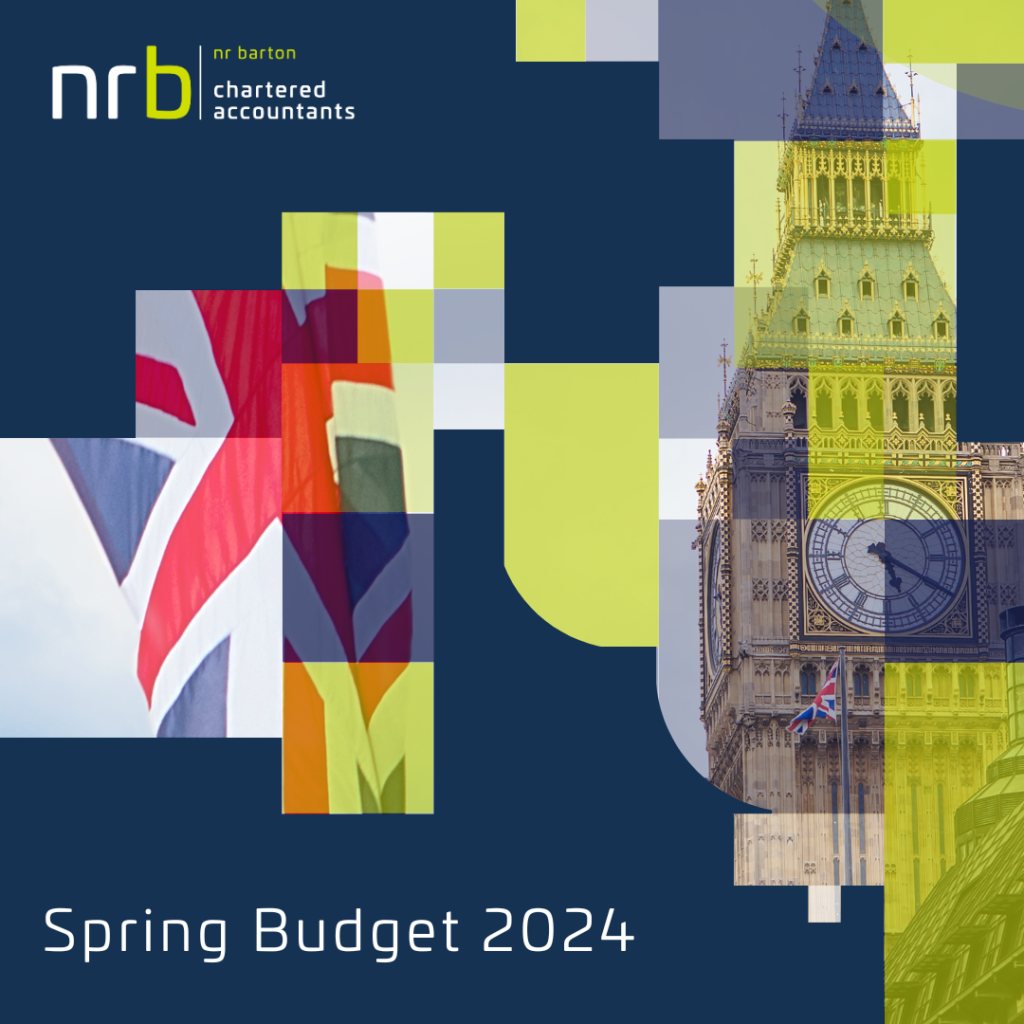
When Jeremy Hunt stood up to deliver the Spring Budget, one of his first statements to the Chamber was “lower taxes mean higher growth” and said it was his “long-term ambition” to continue to cut National Insurance “to make work pay”.
The Chancellor didn’t deliver us with any surprises to the well-trailed, but he did confirm cuts to Capital Gains Tax, further cuts to National Insurance and an increase in the VAT registration threshold. A well-received rejig of the High Income Child Benefit Charge was also made.
If you didn’t manage to watch or hear the Budget being delivered, we have summarised the main takeaways, in our Spring Budget Highlights. You can find the link to this below.
Here we have summarised some of the key points of the Budget.
Personal Taxation
From 6 April 2024, National Insurance Contributions (NICs) will be cut further as follows:
- From 6 April 2024 the main rate of Class 1 employee NICs will be cut from 10% to 8%;
- From 6 April 2024 the main rate of Class 4 self-employed NICs will be cut from 9% to 6%;
- Class 2 self-employed NICs will continue to be abolished from 6 April 2024;
Also from 6 April 2024, the higher rate of Capital Gains Tax (CGT) for disposals of residential property will be cut from 28% to 24%.
The Non-Domicile (Non-Dom) Tax Status has been abolished, meaning foreign nationals who live in the UK, but are officially domiciled overseas, will no longer be able to avoid paying UK tax on their overseas income or capital gains. A “simpler” residency-based system will arrive in 2025.
This will apply to existing tax residents, who have been tax resident for longer than 4 tax years. Changes are set to be made for new arrivals to the UK.
Furnished Holiday Lettings (FHL) Relief is set to be abolished from April 2025. FHL reductions currently apply to properties which are available for holiday letting for at least 210 days a year, and which are let for at least half that time.
Holiday let landlords can claim CGT reliefs for traders, are eligible for plant and machinery capital allowances for items such as furniture, equipment and fixtures, and the profits count as earnings for pension purposes.
Business Taxes
From 1 April 2024, the VAT threshold for businesses will be increased to £90,000 from £85,000, a first increase in seven years which means businesses with an annual taxable turnover less than £90,000 will not be required to register for VAT. The deregistration threshold will also increase from £83,000 to £88,000.
Tax reliefs for touring and orchestral productions, which had to been due to end in March 2025, will be made permanent.
The Covid-era government loan scheme for small businesses will be extended until March 2026.
Freeze on alcohol duty, which had been due to end in August this year, is set to continue until February 2025.
A new tax on vaping products is to start in October 2026, following a consultation. The existing tax on tobacco is to increase, to maintain the “financial incentive to choose vaping over smoking”.
High Income Child Benefit Charge (HICBC)
There will also be a reform of the HICBC. The income threshold which HICBC starts is to be charged from £50,000 to £60,000 from April 2024.
In addition, the rate at which the HICBC is charged will also be halved from 1% of the Child Benefit payment for every additional £100 earnt above the threshold, to 1% for every £200. This means Child Benefit will not be withdrawn in full until individuals earn £80,000 or higher.
The Chancellor also promised to administer the HICBC on a household rather than individual basis by April 2026, and government will consult in due course.
Stamp Duty
In a bid to stop misuse, the stamp duty relief for people and businesses buying more than one dwelling, the Multiple Dwellings Relief, is to be abolished from June 2024.
The Spring Budget 2024 Speech
Spring Budget 2024 speech – GOV.UK (www.gov.uk)
The Spring Budget 2024 Highlights
Spring Budget Highlights 2024 Summary
Further Information
If you would like to discuss how these changes may affect you and/or your business, please contact your usual NRB advisor or our tax team.
Please note, the content of this Spring Budget reaction is intended for general information purposes only. The content should not be relied upon in its entirety and shall not be deemed to be or constitute advice.
While we believe this interpretation to be correct, it cannot be guaranteed, and we cannot accept any responsibility for any action taken or refrained from being taken as a result of the information contained within this summary. Please obtain professional advice before entering into or altering any new arrangement.

